Source: Industry Week (The March from Industrial Automation to Industrial Autonomy)
The rapid changes in the market and business environment require manufacturing companies to become more agile, efficient, and operationally resilient in their business management and activities.
Emerging challenges and progress toward digital transformation have increased the prevalence of industrial automation and have actually accelerated our way toward industrial autonomy and the key promise of Industry 4.0.
The rise of smart manufacturing – in which digital enabling technologies are applied to production and manufacturing, allowing self-learning, self-adapting, autonomous operations – has made the pursuit of industrial autonomy possible.
The confluence of these elements invites the opportunity to realize the transition from industrial automation to industrial autonomy, where systems can operate and adapt to change on their own.
Read the full article here
A survey conducted by Yokogawa revealed that autonomous operations is a primary goal for many companies, and the implementation of autonomous operations has been steadily progressing with growing expectations that industrial autonomy will be a key contributor to industry and environmental sustainability.
The survey reports on 3 main areas: Accelerating deployment of Industrial Automation, Environmental Sustainability and Postive Impacts in Sustainability
Autonomous operations represents an ideal state where operations function with complete autonomy that requires no human intervention throughout a value chain. However, in the near future, complete autonomous operations without human intervention is unlikely and industrial autonomy will extend autonomation systems’ capability and augment human decision-making.
IA2IA Defined (Industrial Automation to Industrial Autonomy)
An established transitional path that demonstrates why moving towards true autonomous operations is essential in a post-pandemic world.
Enabling Technologies for Industrial Autonomy
The journey to industrial autonomy requires the deployment of a variety of technologies. As such, technology and infrastructure readiness is a critical factor in successful industrial autonomy implementation. The good news is that much of the technology and data exists to enable industrial autonomy; 70% of companies cite that cloud computing is ready for large-scale or specialized deployment. The most common technologies being labeled as “game-changers” by industry leaders are artificial intelligence (AI) and robotics.
“Integration mindset is key”
Traditionally, operational technology (OT) and information technology (IT) are separate, and organizations, processes, systems, and data are unconnected. The transition to industrial autonomy requires a variety of technologies across both IT and OT areas — a sensing and digital infrastructure that spans the entire operation and integrates data, smart devices, reliable hardware, and software to deliver the required level of flexibility, adaptability, and resilience. The integrated operations approach combines many functional aspects of business and operations, providing new and enhanced capabilities. Integrated operations increase value by integrating more functions and/or assets of the organization.
Case Study:
Development of an automatic inspection system that utilizes robots to predict hazards in offshore facilities
The centralized coordination of individual robots is complex as it requires the management of multiple systems and the data that they acquire. Yokogawa has already been engaged in the research and development of a robot service platform that centralizes the management of multiple robots and seamlessly links them with existing control systems.
Our Example: We have a series of case studies showing how our machines (and full production lines) contribute to the efficiency, productivity and increase output and better utilise and spread resources.




